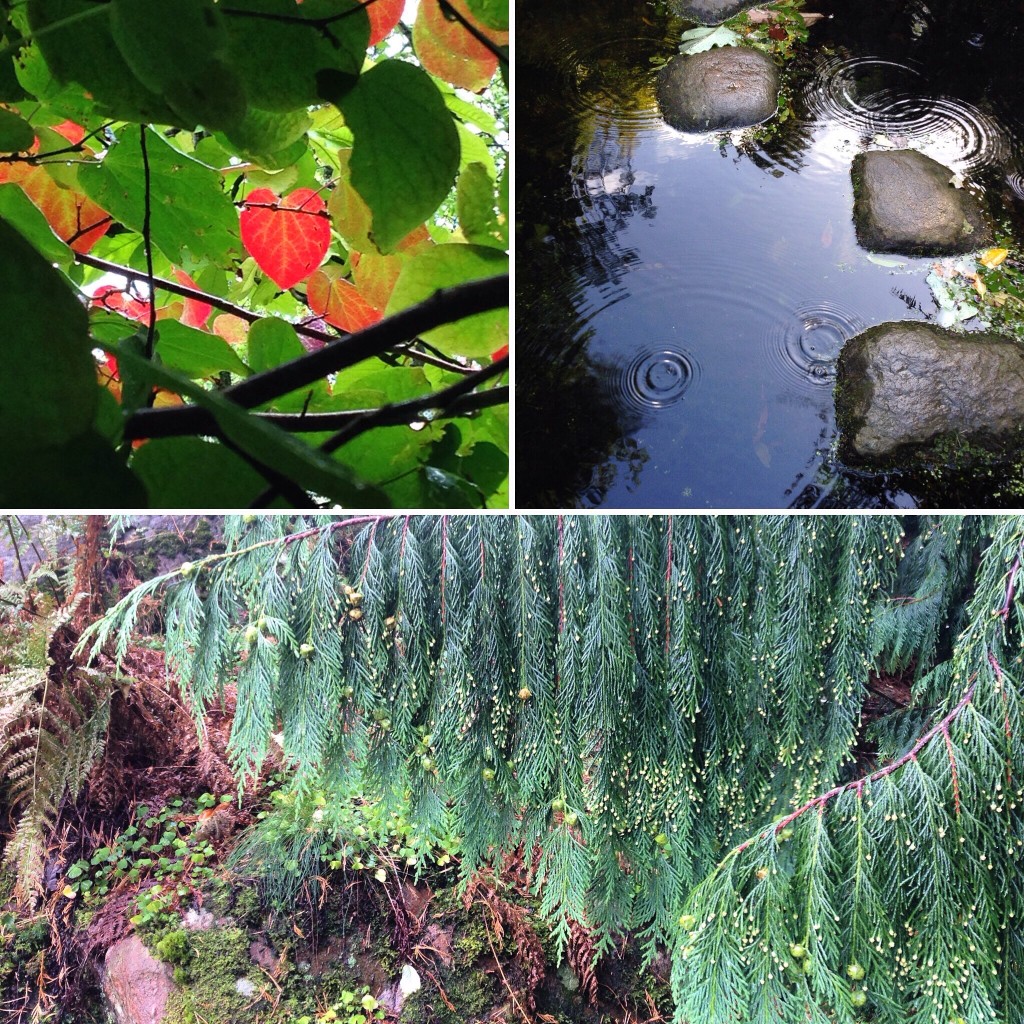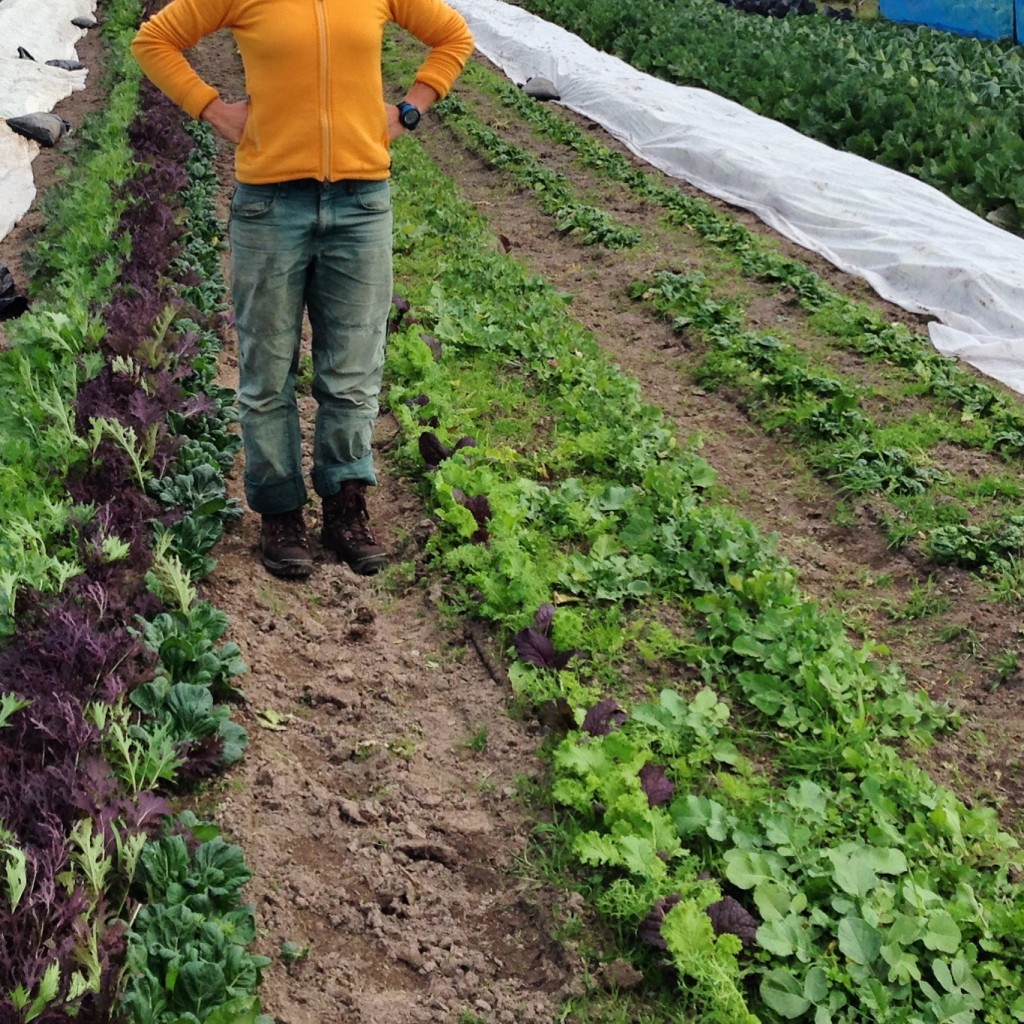When I give in to my love for the land and just open up to the possibility of working on it, in it, with it, I feel so strong. So calm. So happy. So relaxed. So clever. So in the right place.
All these positive emotions are pronounced and enhanced when the land I’m on is also geared towards food production, not just food for humans but for the ecosystem, hence a cyclic approach. There seems to me little point in farming a landscape unless you make sure that you over time enrich the soil biota, the carbon stored, the living mass above ground, the water cleaning structures etc. Mind you, I’m not arguing that all landscapes should or could be foodscapes with an output suitable for humans, its simply the version which happens to be my preferred kind of ”office”.
Back home, working as a gardener at Gothenburg Botanical Garden, I’ve had the chance to learn more about the skill of taking good care of plants which are not necessarily well suited for your climate. Being a living plant museum, there is so much information stored in the trees, shrubs, herbs, bulbs and tubers which are growing there. In a limited space such as this garden, there is no room for large scale ideas, and so most species have but a few individuals representing them, and we are all collectively pampering them as best we can. There is no special
focus on food, since the focus for a botanical garden by default is on maintaining a gene bank – and to present it in a beautiful and interesting way. I can totally roll with that, I think it’s a valid and useful raison d’être, but it took me some thinking to get there. During this long journey I’ve made a point out of visiting other botanical gardens and to talk with different staff members, and this has really helped furthering my understanding of the ”why, how, who, where and when” kind of questions related to my own judgement of the validity of preserving plant material in the setting of a botanical garden. I’m even more proud now than before of the place as a whole and of the work done back home in the garden in Gothenburg.

Switching back to looking at gardening as a way of providing food, the strategy needs to be a bit different. At a farm, even at a place like Murrnong Farm (where Tim and I are working/wwoofing right now) which is based on the principles of permaculture, diversity will in a way be limited. A farms primary reason must be to provide food, or else it will not be able to continue. You can’t acquire the energy needed to maintain and regenerate your farm (and yourself and everyone else feeding from it) if you dilute the calorific outcome by going all in on diversity. Yes, diversity is key to allowing for anomalies in weather and it’s consequences, e.g. droughts, pests, frosts, floods a.s.o., but be mindful: how will you cope with the myriad of outputs that your farm system will deliver if you are putting diversity too high on the wish list? You can of course find and use many different seed sources within the same species or graft many different varieties of the same fruit tree, because that allows you to work with a meaningful and wide enough diversity. Step too far beyond that, and you might loose sight of the food. If you can’t be efficient enough, your not a viable farmer.
I do enjoy working in the diversity of the botanical garden, because the site is such a great teacher, and of course there are many skilled gardeners and others to ask for advice and information. I feel that everything I learn there will at some point come in handy again. There’s no regretting signing up for a couple of seasons there instead of going of to work at a farm. I’ve learnt through life to value all learning opportunities, you just have to zoom out to understand in what area these opportunities take place. For example, cleaning the husks of from hundreds of nuts last season after my colleagues brought back a batch of North American nut species was a perfect intro to now cleaning hundreds of walnuts and pecans grown for food here at the Murrnong farm. Honing your skills is not something that requires you to constantly be in the same kind of setting, for cross pollination can potentially bring you so much further. All kinds of experiences and skills count, as long as you can live with the fact that you don’t always know when you’ll be able to use them next time.
For me, I can truthfully say that I have a wide and broad range of skills listed on my internal CV. Not all of them seem relevant to a potential employer, but to me they are. So on paper I narrow it down to what’s applicable right now, and of I go.
I am a gardener. I am a food grower. I might one day be a farmer.
